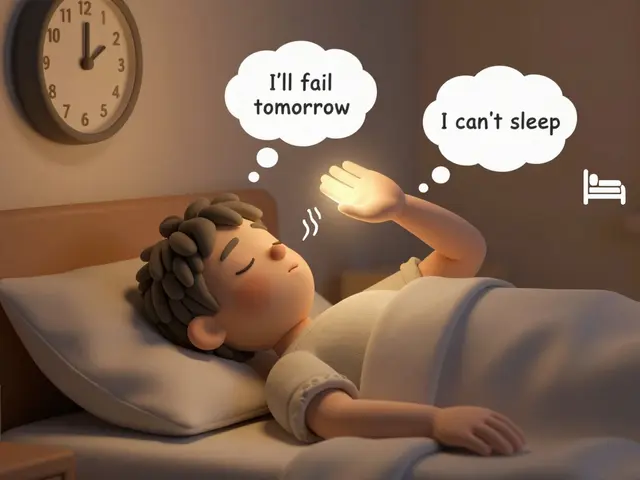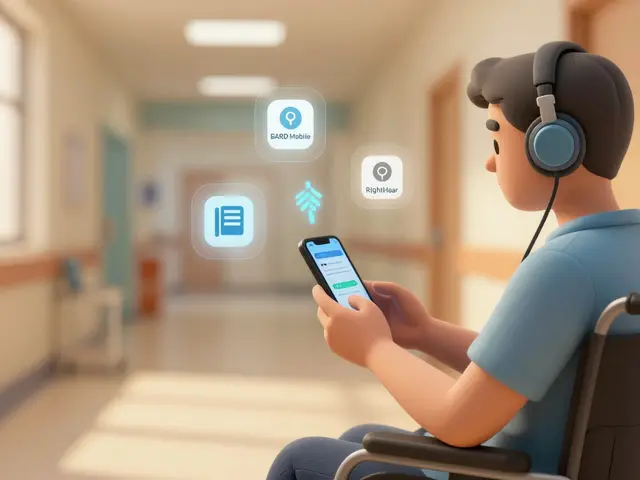Understanding the Importance of Caregivers in Stroke Rehabilitation
Stroke rehabilitation is a crucial part of the recovery process for individuals who have experienced a stroke. As a caregiver, your role in this process can be instrumental in helping your loved one regain their independence, improve their quality of life, and successfully cope with the challenges that arise from their stroke. In this article, we will explore the many ways in which caregivers can support stroke survivors during their rehabilitation journey.
Assisting with Daily Activities and Personal Care
One of the primary responsibilities of a caregiver in stroke rehabilitation is assisting the stroke survivor with daily activities and personal care. Depending on the severity of the stroke and the abilities of the individual, this may include helping with tasks such as bathing, dressing, grooming, and toileting. It's essential to maintain a sense of dignity and respect for the person while providing assistance, so finding a balance between providing necessary support and encouraging independence is vital.
Managing Medications and Medical Appointments
As a caregiver, you will likely be responsible for managing the stroke survivor's medications and ensuring they attend necessary medical appointments. This includes keeping track of prescription refills, administering medications as required, and monitoring for potential side effects. In addition, coordinating with healthcare professionals and advocating for the needs of the stroke survivor during appointments is an essential part of the caregiving role.
Encouraging and Supporting Physical Therapy and Exercise
Physical therapy and exercise are essential aspects of stroke rehabilitation, and as a caregiver, you play a vital role in encouraging and supporting the stroke survivor in these activities. This may involve attending therapy sessions with them, assisting with prescribed exercises at home, and providing emotional support and motivation throughout the process. It's important to be patient and understanding, as progress may be slow and sometimes frustrating for the stroke survivor.
Helping with Communication and Cognitive Challenges
Stroke survivors may experience difficulties with communication and cognitive challenges, which can be incredibly frustrating for both the individual and their caregiver. As a caregiver, you can help by patiently working with the stroke survivor on speech therapy exercises, providing alternative methods of communication, and creating a supportive environment for them to practice and improve their skills. Additionally, engaging in mentally stimulating activities, such as puzzles, games, and reading, can help improve cognitive function over time.
Providing Emotional Support and Encouragement
Stroke rehabilitation can be an emotionally challenging time for both the stroke survivor and their caregiver. Providing emotional support, encouragement, and understanding is an essential aspect of the caregiving role. Acknowledge the stroke survivor's feelings and frustrations, and offer a listening ear and a shoulder to lean on when needed. Celebrate their achievements, no matter how small, and help them maintain a positive outlook throughout the rehabilitation process.
Adjusting to Changes in Roles and Responsibilities
After a stroke, the roles and responsibilities within a family or household may change significantly. As a caregiver, it's important to recognize these changes and adapt accordingly. This may involve taking on new responsibilities, such as managing finances or household chores, while also providing care and support for the stroke survivor. Open communication and a willingness to adapt to new roles and responsibilities can help ensure a smoother transition for everyone involved.
Seeking Support and Resources for Caregivers
Being a caregiver can be both rewarding and challenging, and it's essential to recognize the importance of self-care and seeking support. Connecting with other caregivers, either in person or through online support groups, can provide valuable insight, advice, and encouragement. Additionally, accessing resources such as educational materials, caregiver training programs, and respite care services can help ease the burden of caregiving and ensure you are well-equipped to support your loved one throughout their stroke rehabilitation journey.
Planning for the Future and Ongoing Care
As a caregiver, it's important to plan for the future and consider the ongoing care needs of the stroke survivor. This may involve making modifications to the home environment, considering long-term care options, and discussing advanced care planning with the stroke survivor and their healthcare team. By proactively addressing these issues, you can help ensure that the stroke survivor receives the appropriate care and support throughout their recovery and beyond.



Danielle St. Marie
The notion that caregiver involvement is merely a nice‑to‑have is laughably naive.
A truly effective rehabilitation program demands unwavering dedication from those who claim to love the patient.
Your post glosses over the brutal reality that without rigorous oversight, progress stalls.
Caregivers must adopt a disciplined schedule that rivals military precision.
Anything less is a disservice to the survivor and a betrayal of national healthcare standards.
I cannot stress enough that indulgent attitudes only empower dependency.
Professional guidance should be enforced, not optional.
If families continue to coddle, we will see a decline in recovery rates across the board.
Our society cannot afford to weaken its resolve over such a critical health issue.
Embrace the challenge, unify under the banner of relentless support, and you will witness genuine improvement.
Do not mistake empathy for complacency; the latter is a luxury we cannot grant.
Implement structured exercises, track medication meticulously, and demand accountability at every appointment.
The caregiver's role is not a peripheral footnote but a cornerstone of the therapeutic process.
Discard any sentimental fluff and replace it with measurable actions.
Only then can we claim progress, and perhaps, a brighter future for our nation’s health. 🇺🇸💪👍
keerthi yeligay
Great points but remember caregivers also need self‑care.
Balance is key, not just duty.
Think of the survivor as a parternship, not a project.
Stay curious and keep learning.
Peter Richmond
Indeed, caregiver involvement is integral to neuro‑plastic recovery.
Providing structured assistance aligns with evidence‑based practice.
Encouraging consistent therapy sessions fosters measurable gains.
Professional collaboration ensures optimal outcomes.
Bonnie Lin
Supportive approach works best for both parties
Less is more when guiding daily routines
sara fanisha
Totally agree! Keep the vibes up and the progress will follow 😊
Tristram Torres
Caregivers need to step up. No excuses. The patient depends on it.
Jinny Shin
Alas, the weight of expectation bears heavily upon the humble caregiver, a silent sentinel in the shadows.
deepak tanwar
While poetic lamentation is noted, the empirical data suggests that such melodrama yields no tangible benefit to rehabilitation outcomes.
Abhishek Kumar
Meh, sounds like common sense.
hema khatri
Absolutely! 🇺🇸 This is how we showcase true American strength!!!
Jennell Vandermolen
Thanks for the enthusiasm we can all learn from each other and keep supporting caregivers together